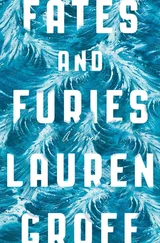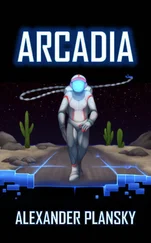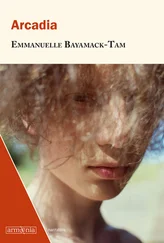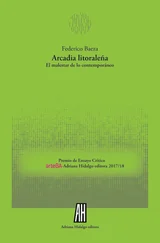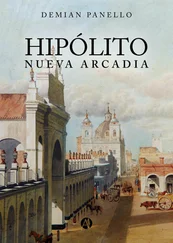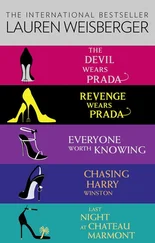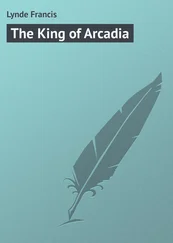Lauren Groff - Arcadia
Здесь есть возможность читать онлайн «Lauren Groff - Arcadia» весь текст электронной книги совершенно бесплатно (целиком полную версию без сокращений). В некоторых случаях можно слушать аудио, скачать через торрент в формате fb2 и присутствует краткое содержание. Год выпуска: 2012, Издательство: Hachette Books, Жанр: Современная проза, на английском языке. Описание произведения, (предисловие) а так же отзывы посетителей доступны на портале библиотеки ЛибКат.
- Название:Arcadia
- Автор:
- Издательство:Hachette Books
- Жанр:
- Год:2012
- ISBN:нет данных
- Рейтинг книги:3 / 5. Голосов: 1
-
Избранное:Добавить в избранное
- Отзывы:
-
Ваша оценка:
- 60
- 1
- 2
- 3
- 4
- 5
Arcadia: краткое содержание, описание и аннотация
Предлагаем к чтению аннотацию, описание, краткое содержание или предисловие (зависит от того, что написал сам автор книги «Arcadia»). Если вы не нашли необходимую информацию о книге — напишите в комментариях, мы постараемся отыскать её.
Arcadia — читать онлайн бесплатно полную книгу (весь текст) целиком
Ниже представлен текст книги, разбитый по страницам. Система сохранения места последней прочитанной страницы, позволяет с удобством читать онлайн бесплатно книгу «Arcadia», без необходимости каждый раз заново искать на чём Вы остановились. Поставьте закладку, и сможете в любой момент перейти на страницу, на которой закончили чтение.
Интервал:
Закладка:
He crumples Abe’s note, puts it in his pocket. He stands in the middle of one of the doctor’s sentences and walks down the long hall. He doesn’t want to be rude, especially to this lovely doctor with her twitch, but he longs only for a blank room and the clean cold of solitude.
It is noon, somehow. Grete has buried her face in her e-reader all morning. Bit feels suffocated between his furiously silent women. At last, he and Grete go to the cafeteria for sandwiches and discover flaccid rolls with morose greenhouse lettuce. Only a few years ago, crisp heads of iceberg had rolled abundantly up from Mexico. Such a small thing, signaling such change.
They have paid and are sitting down when Abe’s death cracks the ground beneath Bit. He would fall in, but for the glimpse he has of Grete’s long hands on the bread, the black chipped polish on the bitten nails.
What? Grete says, looking at him. Dad, what?
The world merges, colors trembling. He feels Grete’s touch on his cheek. Abe, he says.
Oh, says Grete, and there is a shift in her, too. She pulls her chair as close as she can. Together, they close their eyes against the others, the sad food, the sapping cafeteria light.
If Abe were here, Bit might throttle him dead again: what appears to be sorrow is rage. Abe was bedrock; Abe was his world’s gravity; since Bit could remember, his father was his one sure thing.
Hannah’s room fills with dried wildflowers. The local florist is resourceful, faced with the exorbitance of imported goods. But the dusting of pollen makes Grete’s face puff up, and even Hannah stifles sneezes in her bed.
Jincy and the boys arrive, and Grete runs downstairs to meet them. Alone for a minute, Bit goes to his mother’s side. He crouches before her, inches from her face, his eyes watering from her rancid breath. I know you’re awake, he says. Open your eyes.
Slowly, one eye opens in its nest of wrinkles. Hannah blinks. Almost so softly that he can’t hear her, she says, I would prefer not to.
He gasps. He laughs. But the fury quickly settles upon him again. You’re no fucking Bartleby, he says. Her open eye narrows at him.
Jincy and the twins run in, and Bit is engulfed in boy-smells, the funk of filthy hands and breath. Look at this! Oscar says, opening his hand to show the delicate cog of an antique watch. I found it in the playground at school and saved it for you. Isaac had brought nothing, but not to be outdone, says, Look at this! and does a handstand in the middle of Hannah’s hospital floor. Look at this! , the twins say. See me! Jincy has never had a husband or long-term boyfriend: Bit is all there is. When the twins stay over, they start the night cuddling with Grete in her bed, but the morning finds them curled together on Bit’s bedroom floor, faithful as dogs.
Bit pulls the boys to him, where they rest, bony creatures. He looks at Jincy in the door. Unlike the rest of the world, whose good looks slowly and gradually declined into gray hair and wrinkles, her attractiveness has remained stable. What was mousy for a teenager has held steady and turned her striking for a fifty-three-year-old. The spirals of her hair are threaded with grays, and her face is rosy and unlined. She is pleased and bashful under Bit’s admiration. She leans over Hannah and kisses her, brushes her hair from the temple, whispers something. Though Bit strains to hear, he can’t make out a word of what she says.
Grief as a low-grade fever. His sadness is a hive at the back of his head: he moves slowly to keep from being stung. Things bunch together, smooth endlessly out. Astrid arrives; Grete leaps from the chair outside Hannah’s door, shouting Mormor Astrid, I so hoped you’d come! Doctors huddle around Astrid; Astrid marches into Hannah’s room and orders her to sit. A well of surprise in Bit as Hannah painfully pushes herself up. The old friends gaze at one another from across the room, and the way they had been once upon a time washes over him: tall and young in Ersatz Quad, honey and white, Bit tiny, gazing up at their indecipherable stretch.
The car ride back to Arcadia takes a century. The radio reports a thousand dead in Java, sudden sickness, quarantine. Bit turns it off, but Astrid turns it on again, snapping, Ignorance is no help to anyone. He blocks out what he can, the way the disease sets in suddenly, twelve hours and people are dead, a doctor calling it SARS-like, avian flu — like, nobody knows the vectors yet. At last Astrid consents to classical music. Bit is sure that he’ll be bearded and bleary as a hermit when he looks in the rearview mirror, but his eyes shine, his cheeks are flushed. He can still feel the doctor’s small bones under his hug; her violet scent hangs in the air. Call me as often as you like, she’d murmured. Here’s my number. A last flash of white teeth, and he wanted to carry her away with him.
In the calm of the Sugarbush, the sun is tinted green and the birds bugle in the treetops. Bit has to tell himself to not be angry at them. They couldn’t possibly know.
Home is the same. In the pantry, the same rows of glass jars are full of the same beans and grains. The workshed, all tools ranged at knee level for Abe. The path into the Sugarbush, half-choked with weeds. The firewood snaked optimistically around the house, a fortress, a windbreak, an embrace. The heap of the hills purple in the dawn. The way the darkness moves like a creature in the night woods. The woods themselves, tens of thousands of acres that Leif had reclaimed from abandoned farms long before land was valuable again. Abe’s same favorite plate left on the top of the stack. The same double depressions that his parents’ bodies have carved over the years in their mattress.
Hannah’s silence, lifelong, the same.
It would be so easy for him to fall asleep here, to succumb to bed, but Grete is beside him, her eyes narrowed with disgust. Snap out of it, Dad, she says. He breathes and lets home wash and wash over him and busies his hands with tasks — scrubbing the reclaimed floorboards until they shine, baking cakes, making beds — taking solace in the stupid brute motion of his body, letting it lead him through the hours.
Moments, somehow, hatch a week. Now the memorial service. So many people have come. He is dizzied, can hardly see.
The sun is too high, the wind too strong, the Pond smashing against the bank. People feel the need to touch him. Bit is a short man, but they remember him tiny: they pat the crown of his head, and he resists the urge to crush their hands. Hannah’s arm in his twitches. Someone he should recognize in a navy robe is saying an incantation. People say things about Abe: he was the secret strength of Arcadia, he performed a miracle by renovating Arcadia House in three short months, he kept the community going for another decade. And the organizing he did in his old age, the marches on Washington, the impassioned fundraising letters alighting in their mailboxes like stern gray birds of peace. Abe was true to what he believed. Abe, the unswerving one.
Some of the original Circenses Singers, old and flabby, sway under their newest puppets. Their voices are cracked with age, more powerful for loss of pitch. Bit is moved from numbness to hurt. This, he thinks, is what transported means.
He looks up the hill to Arcadia House. Erewhon Illuminations abandoned it after Leif disappeared, and Astrid has left it vacant for two years. Ivy is choking the windows on the west side. There are saplings in the gutters. Pigeons sit heaped on the roofline, buttoning house to sky.
Bit and Grete and Hannah are given an urn. They uncap it. A black smoke of Abe pours into the wind over the Pond. A gray film settles like grease on the water, the harder pieces of Abe falling down to be nibbled by minnows. To wash, molecule by molecule, into the water itself, to be drunk by deer and bears and the muskrats just now watching this strange congregation of humans from the dark safety of their burrows.
Читать дальшеИнтервал:
Закладка:
Похожие книги на «Arcadia»
Представляем Вашему вниманию похожие книги на «Arcadia» списком для выбора. Мы отобрали схожую по названию и смыслу литературу в надежде предоставить читателям больше вариантов отыскать новые, интересные, ещё непрочитанные произведения.
Обсуждение, отзывы о книге «Arcadia» и просто собственные мнения читателей. Оставьте ваши комментарии, напишите, что Вы думаете о произведении, его смысле или главных героях. Укажите что конкретно понравилось, а что нет, и почему Вы так считаете.
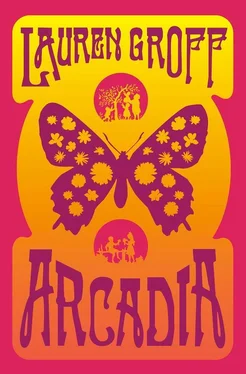
![Andrea Höst - In Arcadia [Touchstone - Extras]](/books/56405/andrea-host-in-arcadia-touchstone-extras-thumb.webp)

